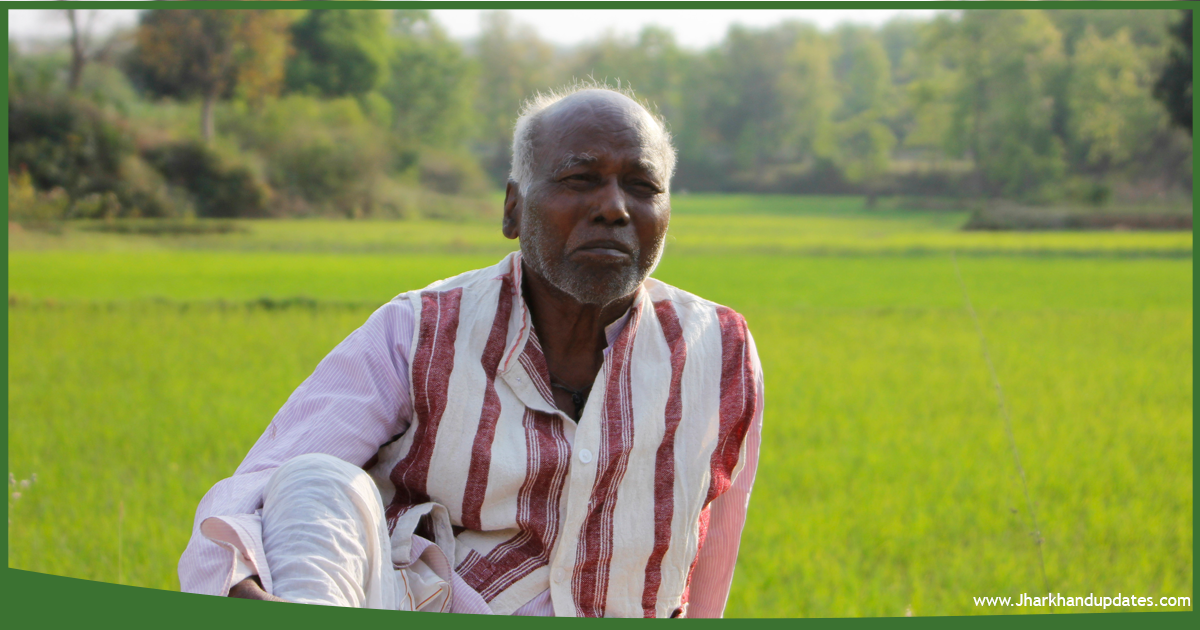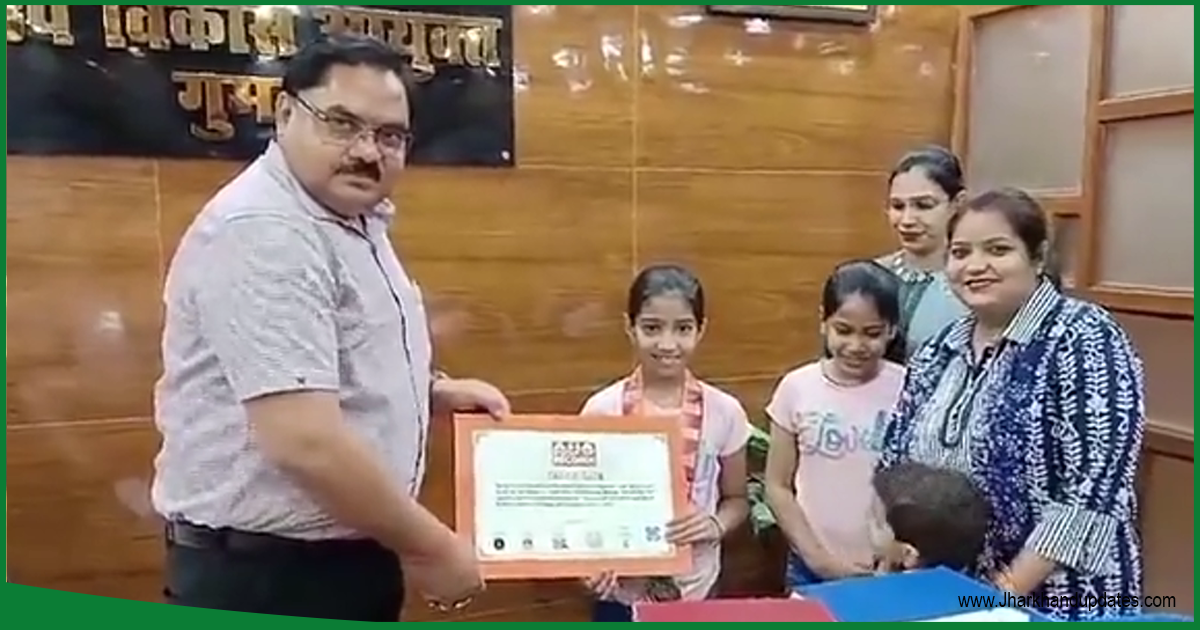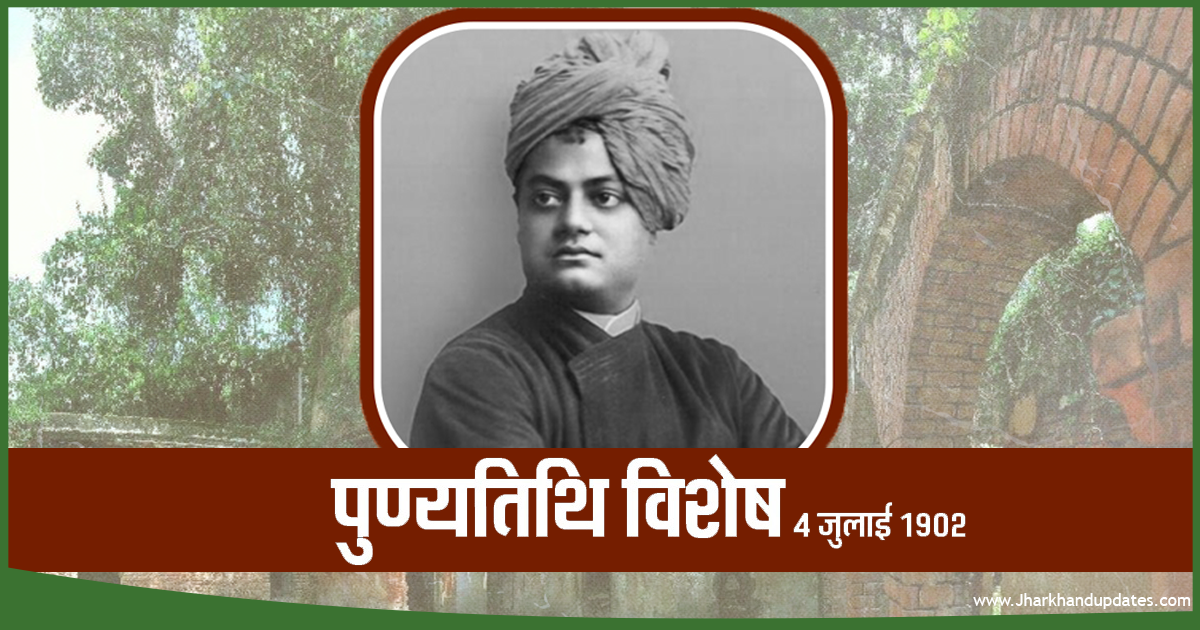Padma Shri Simon Oraon, affectionately called Simon Baba, is a popular name in his village as well surrounding areas. An all too familiar name amongst the environmentalists, and also awarded the Padma Shri in 2016, Simon Oraon, has consistently been working on water management and forest protection since the early days of his life. Now a documentary ‘Jharia’, created by the
National Award-winning filmmaker Biju Toppo, has been released based on the life and work of Simon Oraon. The first scene opens with various scenes of indigenous festivals and vivacious music and color. Throughout the film as Simon travels to different places and situations, he introduces and talks about his struggles and successes. The filmmaker has done an excellent job of capturing the nuances of tribal culture and traditions, their love for the environment, and the democratic self-governance that made them survive and live in harmony with nature. Unlike the usual stereotypical dehumanizing depiction of tribals as ‘different’ and gullible people who need to be ‘spoken for’, the documentary treats them in a humane and just way with affection and respect.
Hailing from the Oraon community, Simon is shown engaging in traditional activities. The Oraon tradition of paying the first visit to the forest to pay respect to Adivasi gods and goddesses where the community expresses gratitude for keeping them safe and sound throughout the year has been captured in its essence. The community then goes to the forest to meet wild animals. As a youth, he was devastated by trees being felled and wanted to bring about a change. He learned to plow at the age of seven and started helping his parents. He left school and admittedly, could not even read. But sadly due to lack of water resources and exploitation of forests by industries they were unable to grow a judicious amount of crops. This resulted in a lot of hardship for the families as they did not have enough food to eat. They would have to often share one madua roti amongst 4 members of the family. He saw the precarious condition of women who had to toil hard and walk long distances to fetch water. He resolved to change all of these. By the age of 25, he got an opportunity to make difference in the condition of people in his society. He was chosen as the chieftain of a cluster of villages. At the time of the shooting of the documentary, he was the chieftain of twelve perhaps, also presiding over 51 villages. Simon who had started building dams since the age of fifteen worked with the villagers and brought about important changes. The villages are now self-sufficient in food and even export it to other regions of India. Where he used to not get the support of villagers he would go alone and set examples.
Once villagers were unwilling to lend land for the construction of a water restoration facility, so he donated his own land. When shunned by authorities and denied water facilities and finances the village committee took it upon themselves and through voluntary donations started construction of a dam which was completed in a decade’s time. His dedication and commitment towards his work, environment, and love for fellow beings led him to almost being drowned and getting jailed twice. Yet, undeterred, he fought ahead. His vision is not limited to only his village but is a broader one. He talks of family, community, nature, farmers, and human civilization in general. He constantly stresses that on the importance of humans taking care of forests, animals as well as water. He believes that humanity is part of nature and should live in harmony with it and its constituents. He also considers his community as family and expects them to spend at least some time together once a week talking and discussing issues together.
He guides the marginalised population across the ST and OBC communities in the villages that he leads and represents. He is one to advocate that the laws made for the farmers should be made in consultation with them. He considers farmers a crucial part of society as they feed the population. He dislikes the manufactured developments that create divisions in the society and blames it on casteism and corruption in the election process. The documentary, Simon Baba, talks about an incident. “There was a discussion in Delhi. I asked what is most important for a farmer? They answered — money. I told them to keep thirty lakh rupees in one room and thirty kilograms of rice in another room. Then lock a person in each room and open them after two days. The one who lives will be considered the winner.” Such is the legacy of Simon, the waterman of Jharkhand, who still live in a thatched house keeps relentlessly working for the betterment of society, farmers, forests, and the environment.







